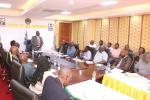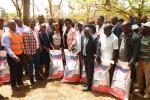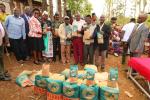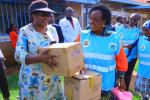Education And Literacy
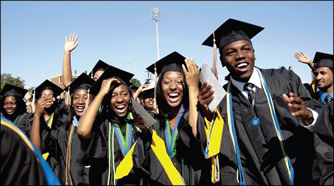
Pre-School Education
There are 61,870 children enrolled in pre-primary schools in the county which constitutes 28,925 male and 32,945 female. This number is enrolled in the 813 ECD centres. The total number of ECD teachers is 1,202 making the teacher child ration to be 1:51. The average number of years of attendance for the pre-school education is two.
Primary Education
The county has 647 public primary schools with a total enrolment of 335,879 pupils and 5,520 teachers. The teacher pupil ratio is 1:60 which is higher than the recommended ratio of 1:40. This number of pupil in primary school is however higher than children aged 6-13 years which stand at 298,025. This is may be attributed to many children joining schools when they are older and others joining from neighbouring counties. Introduction of CDF has resulted to growth in the number of schools and also improvement of school infrastructure.
Literacy
The county rate of literacy stood at 53 per cent in 2012, with the sex ratio being male 40 per cent and 60 per cent female. This implies that girl child campaign has resulted in imbalances in enrolment and completion rates for boys and girls. To improve the literacy rate, 74 adult learning centres have been established with 910 learners and 312 teachers. There are however more female learners than male as the enrolment is 345 males and 565 females.
Secondary Education
There 192 public secondary schools in the county which absorbs students from both public and private primary schools. These schools have a total enrolment of 54,682 students against 1,825 teachers. The proportion of those enrolled in secondary school is however low compared to the population aged 14-17 years as only 45 per cent are in school. The number of male in secondary school stand at 25,625 which is lower than that of girls whose number is 29,057. The low number of boys could be attributed to a combination of factors in the county.
Tertiary Education
There are three public universities, three private universities, two teachers training colleges and various tertiary colleges offering post secondary education. In addition there are several youth polytechnics involved mainly in training on life skills such as masonry, welding, tailoring and carpentry.

